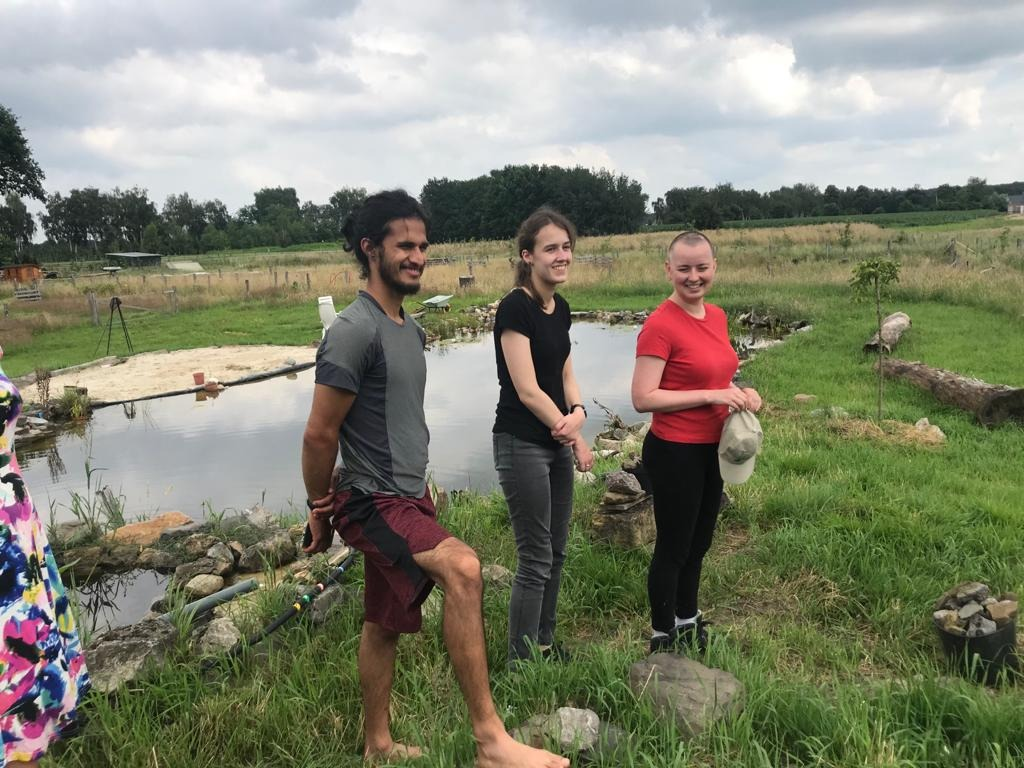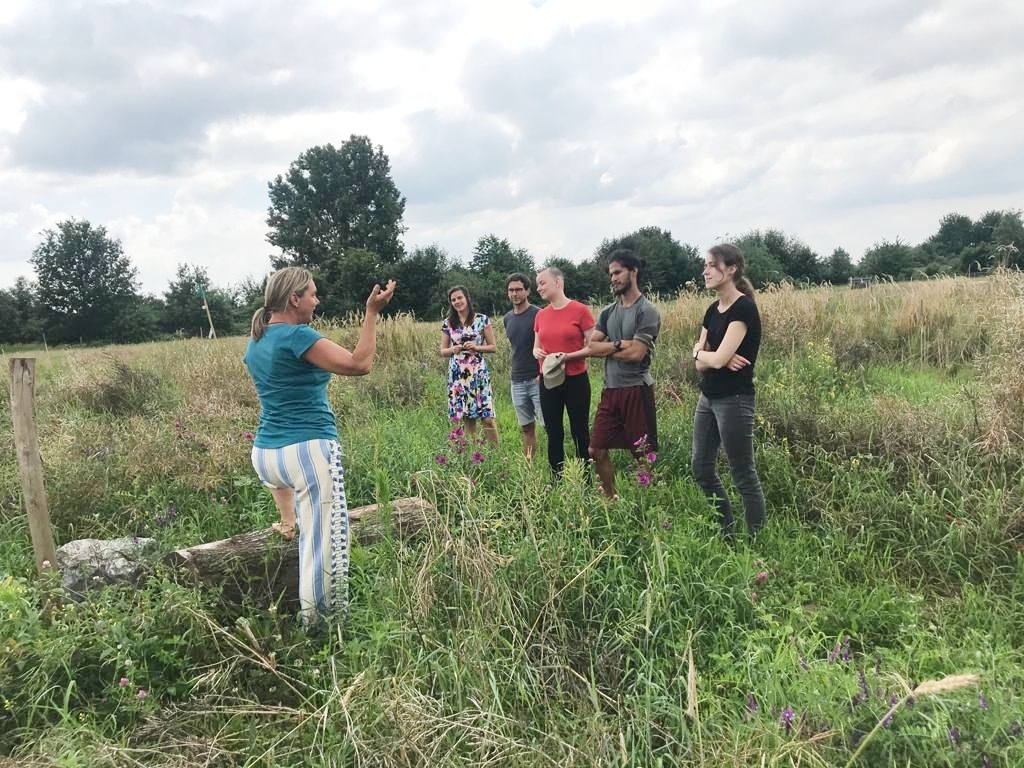The winning ACT project* was commissioned by Kestrel Maher. Five years ago, Maher moved to the Netherlands to live with her husband on a farm in Geffen, Noord-Brabant. ‘In Australia, I was used to the wild. In the Netherlands, everything is very ordered and tamed. I missed the wilderness. We sold some of the farmland to the municipality to turn into a nature reserve, and they gave us a subsidy to plant a food forest with parts that only have native species.’
Maher has experience with nature restoration, permaculture and food forests. ‘However, all that experience is in Australia. I know nothing of Dutch native nature. Australia is a completely different set of ecosystems. I can help you restore a koala habitat, but when it comes to this climate and this soil, I knew nothing.’ To plant a food forest here, good advice was necessary.
A bible of native species
A colleague of Maher’s heard what she and her husband wanted to do with the food forest and recommended the ACT program at Wageningen University. ‘That is exactly what we needed, she said.’ Helpful advice, it turned out. ‘I just gave them our story, that we wanted to have a food forest with native species, and they figured out exactly what we needed. They framed the questions themselves. And the funny thing was, because of the lockdown, they weren’t even allowed to visit the farm itself.’
Since half of the food forest is supposed to have only native species, the students compiled what Maher calls a ‘native species bible’. ‘They told me everything about the native species in a fantastic format. Which trees can handle wind; how big bushes and trees can become; how close one type of tree should be planted to other types of tree; what kind of soil is needed; which plants support each other; and much more. Last winter, we planted 2500 native trees and bushes, from chestnuts and wild apples to redcurrants and blackcurrants. A massive undertaking, and that bible was invaluable.’
Soil as the basis
The students also took the initiative to send a soil expert to the farm. ‘They wrote an entire section about soil improvements’, Maher says. ‘We received it, read it and made the suggested improvements. First, the soil was poor, acid sandy ground and you couldn’t find worms anywhere. Now, every time you put a shovel in the ground, you find a worm. Good soil is the basis of a good ecosystem. This helps us to create a food forest for both food production and wildlife conservation.’
In July, the ACT team was finally able to visit the farm together. ‘It was amazing to see the farm’, says one of the six team members, Raghav Sharma. ‘I might go again in the summer to help on the farm and camp there. Working for a client during your Master’s program prepares you for what is going to come after your studies. It is like a short two-month work experience. Due to Covid-19, the project was fully online, and we were all a bit sceptical about that to start with. Nonetheless our team’s chemistry was great. This project was an amazing experience.’
*ACT stands for Academic Consultancy Training: a course in which Master’s students work on a real-world project as consultants.


 The ACT-team (finally) visited the farm and food forest in July. Photo Kestrel Maher
The ACT-team (finally) visited the farm and food forest in July. Photo Kestrel Maher